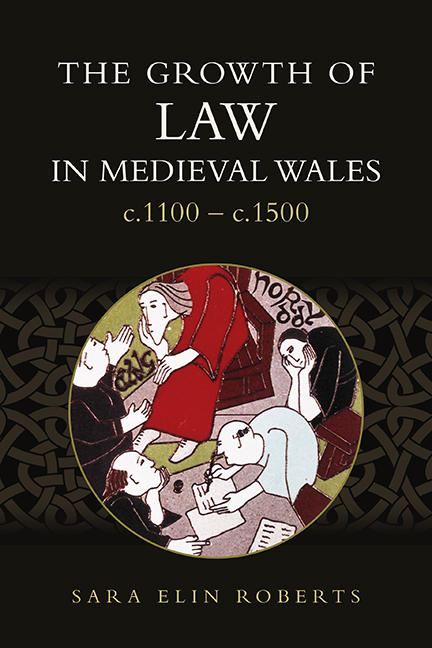7 - ‘Much matter not elsewhere to be found’: The Non-Redaction Lawbooks
Published online by Cambridge University Press: 08 October 2022
Summary
Much matter, not elsewhere to be found, has been collected from this volume.
In his description of manuscript S, one of the ‘composite’ manuscripts described in the previous chapter, Aneurin Owen noted that he found in that manuscript material other than the redaction material that made up his ‘Codes’. These unique texts from S were presented in AL XI, and other non-redaction material in S was used for variant readings in AL X. This final chapter will consider several manuscripts that contain large amounts of legal material which is not found ‘elsewhere’, material and texts which do not form part of the redaction texts, some of it unique to individual law manuscripts. As was noted in Chapter 6, the composite manuscripts contain a redaction text as well as other material that defies categorisation into a redaction, and Owen's treatment of these manuscripts was discussed there. The manuscripts under consideration in this chapter were even more problematic for Owen, since many of them do not contain a redaction text at all. Some he assigned into a category of ‘anomalous’ manuscripts; others were used very little in his work. One or two were ‘not collated’ by Owen (although he was clearly aware of their existence), and these were not included in his list of sources in the introduction to his work. To give Aneurin Owen his due, his contribution to the field in general was enormous, and his categorisation of the material was done in part out of a practical necessity, as well as being led by his view of the nature of the law. This makes Ancient Laws a product of its time, but it must be acknowledged that Aneurin Owen made great strides in making the contents of the legal manuscripts accessible in a way in which they had not been before.
Perhaps as a result of this, the manuscripts that will be studied in this chapter have not received much attention from scholars. Of the eight in question, only two have benefitted from a full edition.2 Very few parts, if any, of the remaining six have been edited or published, and very little attention has been paid to them, either individually or as a group. This study, then, will focus on these neglected texts, will look at what is contained within them, and examine the contents without the constraints of attempting to fit them into any scheme.
- Type
- Chapter
- Information
- The Growth of Law in Medieval Wales, c.1100-c.1500 , pp. 187 - 208Publisher: Boydell & BrewerPrint publication year: 2022

